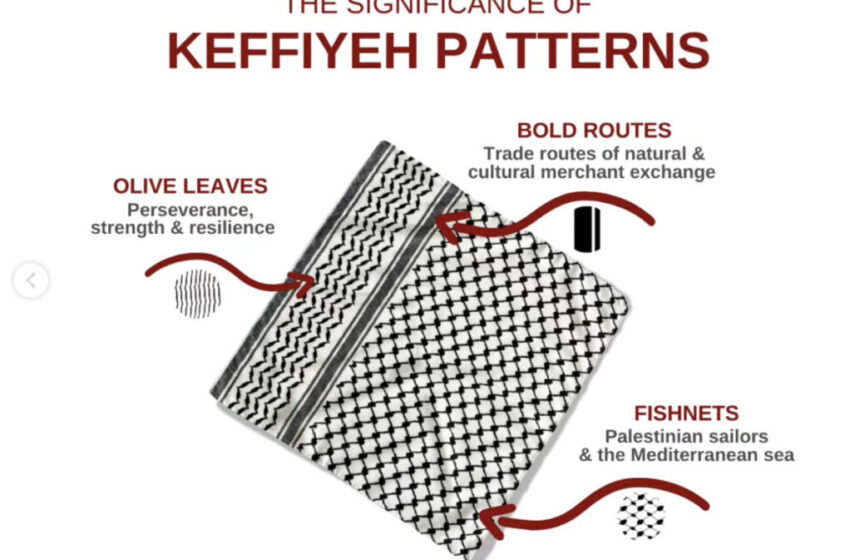
Saudi Arabia Starts Arresting Pilgrims For Wearing Palestinian Keffiyeh
MAKKAH – A British actor and an Indonesian woman were detained for wearing Palestinian attire, along with an Algerian sheikh who prayed for the condition of Gazans in Saudi Arabia.
Saudi Arabia has reportedly detained worshippers who openly show solidarity for Gaza and pray for Palestine at the holy sites in Mecca and Medina.
Islah Abdur-Rahman, a British actor, recently shared his experience when he was detained for wearing a Palestinian keffiyeh.
Abdur Rahman raised concerns about the issue of displays of support for Palestine in Saudi Arabia.
During his detention, soldiers stopped Abdur Rahman for wearing a white keffiyeh and Palestinian-colored tasbih.
Interrogated about his nationality, purpose of visit, and duration of stay, the soldiers specifically focused on the keffiyeh, highlighting its Palestinian origin. After his release, he was advised not to wear the keffiyeh, as it was reportedly not allowed.
Abdur Rahman expressed initial fear in a foreign country without rights but later described the experience as heartbreak, particularly considering the ongoing Israeli bombardment of Gaza. Despite sharing his experience on Instagram to shed light on the issue, he faced online hate messages from Saudi Arabians defending the restrictions on flags or symbols in places of worship.
Similar incidents have surfaced online, with individuals being detained for expressing sympathy for Palestinians and praying for them.
An Algerian man on Umrah in Saudi Arabia was reportedly detained for over six hours for praying for Palestinians, cautioning others to be aware when visiting holy sites.
Another incident involved an Indonesian woman who was detained for having a Palestinian flag on her hijab.
Prominent sheiks have hinted at avoiding explicit comments or gestures regarding the war.
Abdul Rahman al-Sudais, the head of Saudi Arabia’s religious affairs at the Grand Mosque, urged Muslims not to interfere in the events in Gaza, emphasizing the need for prayers rather than engaging in actions without proper authority.
Recent events saw two individuals, an Algerian Sheik and a Turkish, being detained by Saudi Arabian authorities for openly expressing solidarity with Gaza and Palestine during their pilgrimage.
The Algerian Sheikh recounted a six-hour ordeal at the hands of Saudi police for sharing that he had prayed for the Palestinians at the Prophet’s mosque.
The sheik questioned whether it is a crime to pray for the oppressed and highlighted the destruction faced by hospitals and mosques in Palestine, urging people to keep their prayers private.
In a separate incident, Turkish Mustafa Evi faced arrest in Makkah during Umrah for advocating for Gaza and Palestine. In a video statement, Sheikh Mustafa revealed his arrest for merely mentioning Gaza and Palestine.
Notably, these detentions underscore the restrictive stance on expressing support for Palestine within the kingdom, revealing Saudi Arabia’s prohibition on displaying foreign flags and reportedly forbidding public prayers for Palestinians, even at holy sites.
What is Palestinian Keffiyeh?
Palestinian Keffiyeh, also known as Hatta, Kufiya, or Shemagh is a chequered white and black scarf that is usually worn around the head or neck. Keffiyeh has become a symbol of Palestinian nationalism back in the days of the 1936-1939 Arab revolt in Palestine.

The Keffiyeh is very significant for Palestinians, as it is used as an international symbol of solidarity with the Palestinian cause. It represents Palestinian resistance and identity.




